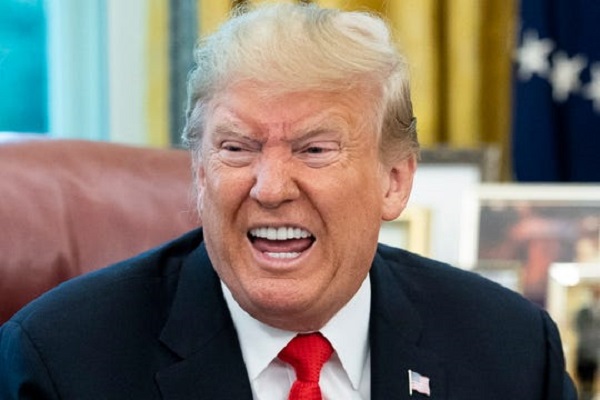Alwaght- The US has announced sanctions on two Turkish ministries and three senior government officials over the country's military operation in northeastern Syria against Kurdish militant factions.
The Trump administration has imposed sanctions on Turkey's Ministry of National Defense and the Ministry of Energy and Natural Resources, as well as the heads of the two ministries and the minister of the interior in response to the country’s military operations in Syria, said a statement released by the Department of Treasury released on Monday.
Earlier on Monday, President Trump also released a statement announcing new sanctions against "current and former officials of the Government of Turkey and any persons contributing to Turkey's destabilizing actions in northeast Syria.”
Before the Turkish operation, dubbed Peace Spring, began, the US leader warned Turkey that it will see its economy “devastated” by US sanctions if it goes ahead with a plan to launch attacks on Kurdish factions who are Washington’s allies in Syria. That was followed by an abrupt decision to pull American forces out of Kurdish-controlled region, a move read a green light to Turkey.
Just before the sanctions, Trump in phone conversation told Recept Tayyip Erdogan of Turkey to stop his raiding of Kurdish-controlled region, Vice-President Mike Pence said on Monday.
Ankara began its offensive on a Syrian Democratic Forces (SDF) and the People’s Protection Units (YPG) to force them back from the Syrian borders with Turkey. Erdogan said he will create a safe zone in the captured areas to allow Syrian refugees back home.
Kurdish groups warned that Ankara seeks a demographic change to the region, marked by bringing Arabs to replace the Kurds fleeing the clash regions.
US game in Syria
The American president is playing a clear-to-all game in Syria. On the one hand, he gave a green light to Erdogan to launch his military campaign and on the other hand sanctioned the Turkish government. The ban will apparently be insignificant in terms of working but abandoning the allied Kurds will hit them hard.
There appears an agreement between Trump and Erdogan over the north— to separate the region from the Arab country to prepare the ground for “new Syria” birth, an autonomous region in the north in which Turkish-allied Arabs, not the Kurds, are the majority.
The Kurds, however, are living in the hesitation of not allying concretely with the central government to protect them. It may cost them abandoning part of their ambitions But buying defense is worth it at present.
On Monday, they said they agreed with Russia to see the Syrian army arriving in Manabij town and spread across the border with Turkey. The move will send a message that Syria is not split and that the Turkish aggression is taking place against a sovereign state.
This is coming amid wide-ranging frustration with the US leaving its Kurdish allies in Turkey’s mercy.
The Kurds had enough time to figure out that the US with its substantially mercantilist-minded administration will not prefer them over Turkey, a NATO ally and a big trade partner.



























